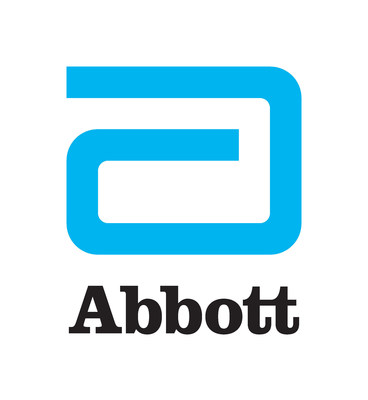New Data Confirms Abbott's Dorsal Root Ganglion Stimulation Offers Greater Treatment Success over Traditional Spinal Cord Stimulation
- ACCURATE study confirms DRG stimulation provides superior, targeted and consistent pain relief for patients with complex regional pain syndrome
- DRG Stimulation has been well received; since the U.S. launch of Abbott's DRG stimulation in April 2016, more than 300 physicians across the country have been trained to deliver the therapy
ABBOTT PARK, Ill., Jan. 17, 2017 /PRNewswire/ -- New data published in the January edition of Pain has confirmed the superiority of Abbott's dorsal root ganglion (DRG) stimulation therapy over traditional spinal cord stimulation (SCS) for patients suffering from complex regional pain syndrome (CRPS). The data, which include both short-term and long-term data from the ACCURATE study, also suggested that DRG stimulation benefits patients' total mood and activity levels. Abbott is the only company in the world approved to offer DRG stimulation.
While the latest publication highlights the superiority of Abbott's DRG stimulation therapy for patients suffering from CRPS, real-world insight also continues to support momentum around adoption of the therapy among providers offering DRG stimulation to their patients. Since the company launched DRG stimulation in April 2016 in the United States, more than 300 physicians across the country have been trained to deliver the therapy. The therapy is now offered in every state in the U.S., and has been widely available in Europe since 2011.
"Historically, many patients with chronic pain resulting from complex regional pain syndrome or pain resulting from damage to peripheral nerves report inconsistent or inadequate pain relief from tonic spinal cord stimulation. As a physician this is frustrating because our ultimate goal is to deliver options providing meaningful pain relief," said Timothy R. Deer, M.D., president and chief executive officer of The Center for Pain Relief in Charleston, West Virginia, and lead author of the ACCURATE study publication. "The findings highlighted in our publication align with what I've seen in my practice since U.S. approval of DRG stimulation: that DRG stimulation offers a superior option for CRPS-related chronic pain and improved quality of life for my patients."
Findings from the ACCURATE Study
The latest publication in Pain highlights both three-month and 12-month data from the ACCURATE study, the largest study to date evaluating patients suffering from chronic lower limb pain associated with CRPS. The 12-month data were previously presented at the 19th annual meeting of the North American Neuromodulation Society (NANS) in Las Vegas, Nevada, in December 2015 and the three-month primary endpoint data were originally presented at the International Neuromodulation Society (INS) annual meeting in June 2015.
The ACCURATE study showed that after both three and 12 months, Abbott's DRG stimulation therapy offered patients:
- Sustained and superior pain relief: After 12 months, a statistically significant number of patients receiving DRG stimulation achieved meaningful pain relief and greater treatment success when compared to patients receiving traditional SCS (74.2 percent vs. 53.0 percent).
Secondary endpoint data suggested:
- Reduced paresthesia: At 12 months, more than a third of patients who received DRG stimulation were experiencing greater than 80 percent pain relief with no paresthesia. (Paresthesia is a light tingling sensation often accompanying traditional tonic spinal cord stimulation.)
- Improvements in quality of life: At 12 months, DRG patients had statistically greater improvements in their physical component (p=0.04), general health (p=0.03) and social functioning (p=0.03) when compared to SCS subjects.
"Data such as these are critical to providing patients hope that there are treatment options out there that can provide meaningful pain relief for the excruciating pain CRPS sufferers deal with every day," said Jim Broatch, executive vice president and director of the Reflex Sympathetic Dystrophy Syndrome Association (RSDSA), a group specializing in providing resources for patients battling CRPS. "Our organization, which has focused for years on advancing treatments for patients with CRPS, applauds the physicians and patients who took part in this study and who have helped advance the understanding of this condition and the impact of DRG stimulation on improving the lives of patients everywhere."
Patients battling CRPS often face prolonged or excessive chronic pain following an injury or trauma. The condition is believed to be caused in part by damaged or malfunctioning nerves, and it affects the way the central and peripheral nervous systems transmit and receive pain signals. Stimulation with Abbott's Axium® Neurostimulation System targets nerves within the DRG, a spinal structure made up of sensory nerves. DRG stimulation has been clinically-proven to provide pain relief directly to the area of the body where pain occurs.
About Abbott's Chronic Pain Portfolio:
Chronic pain affects approximately 1.5 billion people worldwide, more than heart disease, cancer and diabetes combined. The condition can negatively impact personal relationships, work productivity and a patient's daily routine. Abbott is a global leader in the development of chronic pain therapy solutions and the only medical device manufacturer in the world to offer radiofrequency ablation (RFA) and spinal cord stimulation (SCS) therapy solutions including BurstDR stimulation and stimulation of the dorsal root ganglion (DRG) for the treatment of chronic pain.
About Abbott:
At Abbott (NYSE: ABT), we're committed to helping people live their best possible life through the power of health. For more than 125 years, we've brought new products and technologies to the world -- in nutrition, diagnostics, medical devices and branded generic pharmaceuticals -- that create more possibilities for more people at all stages of life. Today, 74,000 of us are working to help people live not just longer, but better, in the more than 150 countries we serve.
Connect with us at www.abbott.com, on Facebook at www.facebook.com/Abbott and on Twitter @AbbottNews and @AbbottGlobal.
SOURCE Abbott
For further information: Abbott Media: Justin Paquette, 651-756-6293; Abbott Financial: J.C. Weigelt, 651-756-4347
 BACK TO PRESS RELEASES
BACK TO PRESS RELEASES
